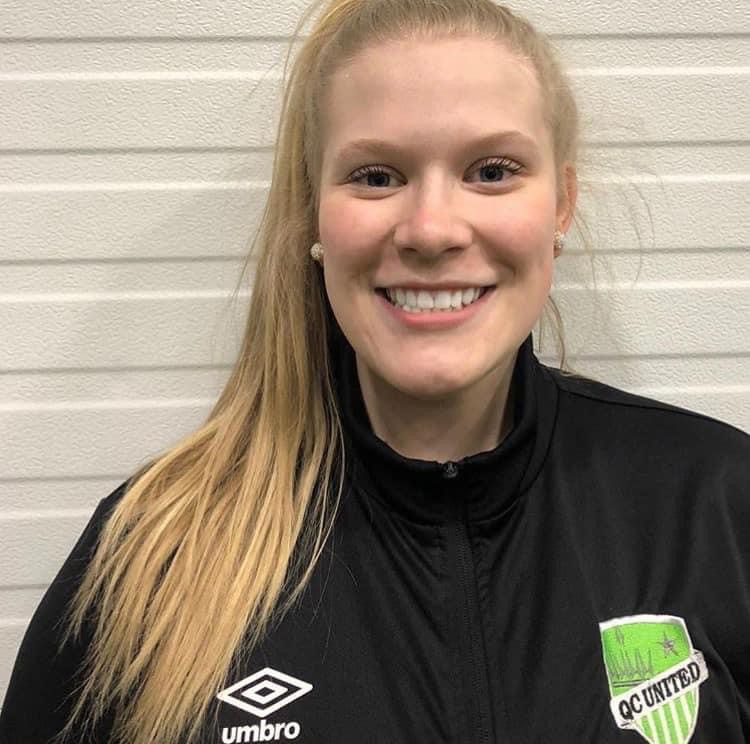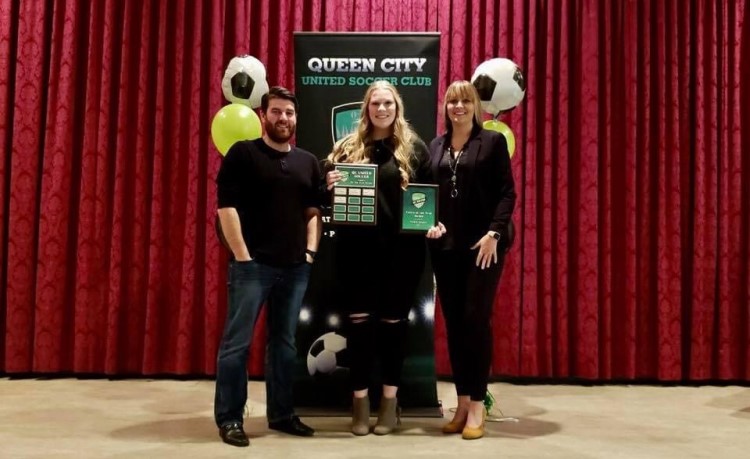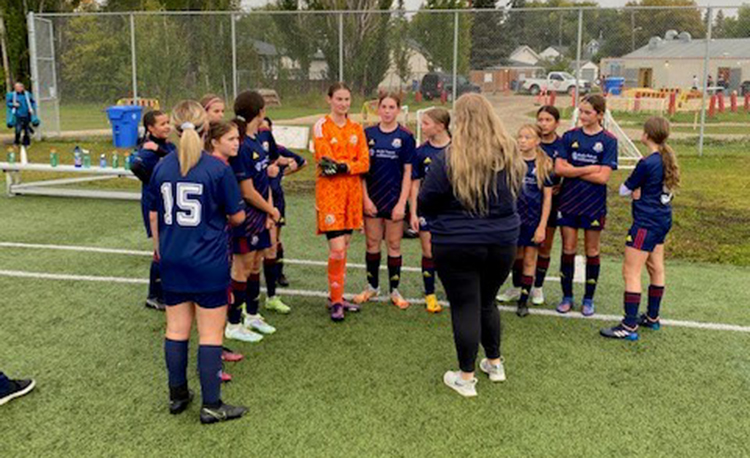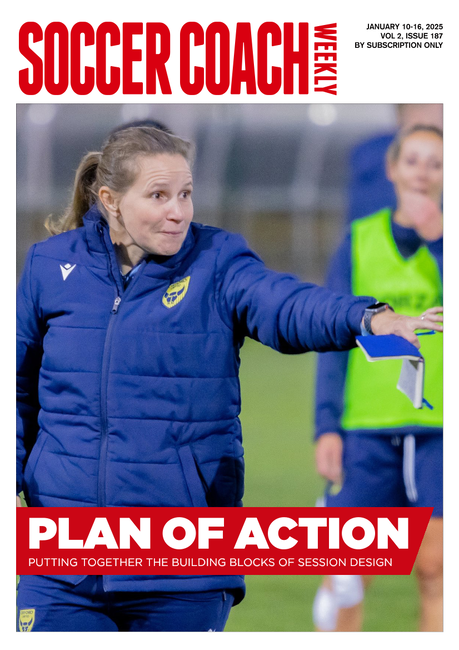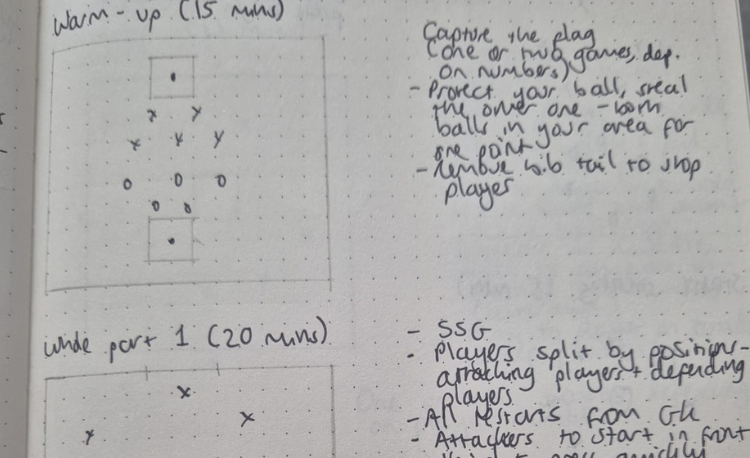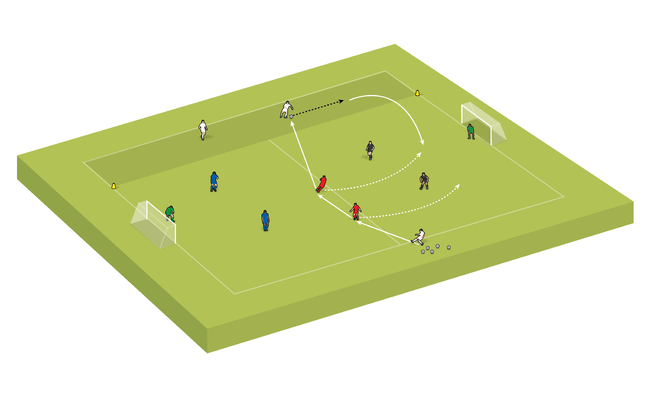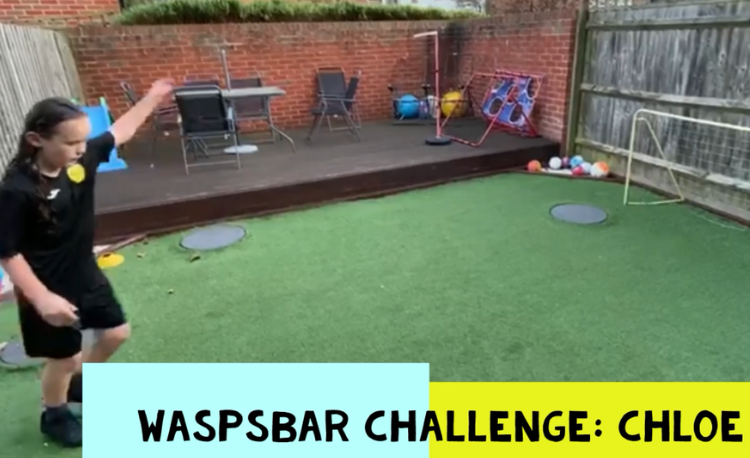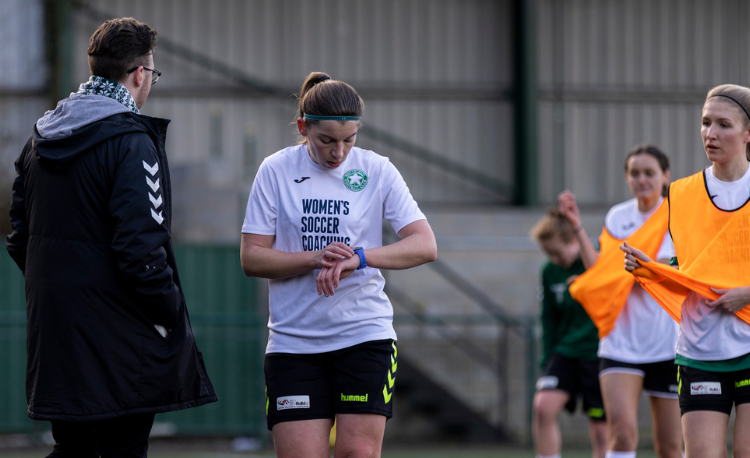Faith Jasper: 'Athletes are scared to make mistakes'
In part two of her chat with Scott Mowberry, Winnipeg-based youth coach Faith Jasper discusses ’quality coaching’ and the keys to player engagement
Faith Jasper is head coach of the U14s girls premier team and assistant coach of the U15s girls premier team at Bonivital SC in the Canadian city of Winnipeg.
She recently spoke to Scott Mowberry, from our friends at the Soccer Coaching Podcast, and this is part two of our highlights from their chat.
This week, Faith discusses her definition of ’quality coaching’, what player engagement looks like and why it is so important for participation, and the fun and perils of letting players pick their own sessions…
SM: What would you say is quality coaching?
FJ: "The first one is putting the athlete first in the scheme of the game. I think the athletes should run the game.
"Then, it’s creating an environment to allow mistakes to happen. You don’t learn if you don’t make mistakes. Athletes are scared to make mistakes. I think that is so toxic within the sporting world in general.
"I tell all my athletes, ’You do not need to say sorry. You are here to make mistakes. That is the entire point of sport’.
"Sometimes the mistakes work in your favor. Sometimes you get a good bounce, other times you don’t, and you’re trying to chase all the way back to get that player who just stole your ball.
"The next one would be: ask your athletes questions. Don’t just give answers. Ask them questions like, ‘Why did you play that ball? What do you see?’.
"Allow yourself to see it in their lens. That allows them to feel more comfortable to make mistakes. They know you’re going to hear them out, you’re not just going to rip into them.
“Don’t just give the answers, because you don’t know everything. None of us know everything.
"Allow them to see you as a person and being vulnerable, seeing you not as this perfect human being who is on a pedestal, but as a normal human, who is trying to learn from them, too.
“Team bonding is a big one. That engagement level is huge within sport in general - doesn’t matter the age group or the level. Ensuring athletes are bonding outside of the pitch as well as on is super important.
"Engagement can look as simple as smiles at practice and them enjoying themselves..."
“Even if they’re not best friends, they have to get along to play a sport. You can’t have two kids who hate each other playing on the same team. It’s not going to work. If they can’t be friends, they can be civil.”
SM: You’re very passionate about building player engagement. What do you mean by that and why do you think it’s so important?
FJ: "I think engagement can look as simple as paying attention during a conversation or it can be a kid asking you questions back, saying, ‘Why are we doing this? Where is this going to happen in a game?’.
“I like questions. I’ve said multiple times how proud I am of the teams I coach who can break down the game, engage in conversation outside of the sport and in those intellectual conversations that I never have seen U13 girls have about the sport.
“It can [also] look as simple as smiles and laughs at practice and them actually enjoying themselves. They make a great run and they know it was a good run, so they turn around and are huffing and puffing, but they’re smiling on their walk back to their position.
“One of the most important things in the world of engagement is that you’re able to see that athletes want to be there.
"They’re not forced to be there, they’re not dreading coming to practice. They want to be there, they’re engaged in the sport, they want to see it happen, and so they come to practice eager to learn and eager to try.
“Engagement looks a lot different in a lot of different senses. But in general, I would say wanting to be a part of the game would be what engagement looks like and that can look as simple as paying attention at practice, engaging in conversation, or just looking happy to be there."
SM: From a player development point of view, why is it important that we try and get our players engaged in the sessions?
FJ: "It allows them to keep coming back to the sport and it allows for numbers to continue growing.
"If we look at the female side, specifically, engaging in the sporting world is something that is key if we’re wanting to grow the female game.
"Wanting to come back and having something to work towards is super important if we’re wanting to continue to grow female sport.
“We can’t have females in sport if they don’t want to come. We can’t create an environment where they don’t feel like they want to come, where they don’t wake up wanting to come, or they dread coming after school. So make sure that environment is one that is welcoming and they want to come to."
SM: What tips would you have for coaches about how they might build engagement?
FJ: "Going back to player ownership, let them explain their logic. Let them explain why they’re doing what they’re doing.
"That relationship is key to having an engaged player. If they’re scared to play, they’re not going to want to engage.
“Along with that, be vulnerable with them, be real with them. I’ve come to practice and I’ve been like, ‘Guys, I’m not in a good mood, please listen. I can’t be angry today. I want to have a good time. You guys make me happy. Please don’t wreck it today’.
“You’re a human too. They can’t place you on that pedestal and way above them.
“The next one is creating fun experiences with them within the serious practices. So, as much as we want practice to be serious and we want to be focused throughout, I am a strong believer that you need to have fun within those practices.
“If we’re doing a 3v3 plus 3, they have to come up with a team name. Whoever has the best one gets an extra point and gets to pick who they want to play first.
"If I am feeling really, really confident, I have let them create their own session..."
“They have that game-like situation and are going to give 100%, but they also have this three minutes of fun where they can get all their sillies out so we know when they go onto the pitch they’re going to be at 100%."
SM: Would you have the players ever be part of the session planning?
FJ: "Depending on what we’re doing or how games have gone that week, I give them options. I’ll give them two games and let them pick.
"If I am feeling really, really confident, I have let them create their own session, usually near the end of the season where it’s, ’okay, we focused on all our themes, I know you guys know what we’re talking about now. I’ve seen it pan out in a game. For the last two sessions, you guys can pick what you want to do’.
“It’s super interesting because sometimes they pick some of the most technical sessions we’ve done. They pick the games that emphasize these moments and that I think are at the bottom of their fun tier.
"But these kids continue to amaze me because they pick these intellectual games we’ve played, not just because they’re fun, but that they want to improve.
“I like the idea of them choosing their own session and having us run it. I think there’s a time and place for that.
"They’re not going to be choosing their session every time. As fun as that would be, that would also put me out of a job!"
Related Files
Newsletter Sign Up
Coaches Testimonials

Gerald Kearney, Downtown Las Vegas Soccer Club

Paul Butler, Florida, USA

Rick Shields, Springboro, USA

Tony Green, Pierrefonds Titans, Quebec, Canada
Subscribe Today
Discover the simple way to become a more effective, more successful soccer coach
In a recent survey 89% of subscribers said Soccer Coach Weekly makes them more confident, 91% said Soccer Coach Weekly makes them a more effective coach and 93% said Soccer Coach Weekly makes them more inspired.
*includes 3 coaching manuals
Get Weekly Inspiration
All the latest techniques and approaches
Soccer Coach Weekly offers proven and easy to use soccer drills, coaching sessions, practice plans, small-sided games, warm-ups, training tips and advice.
We've been at the cutting edge of soccer coaching since we launched in 2007, creating resources for the grassroots youth coach, following best practice from around the world and insights from the professional game.
